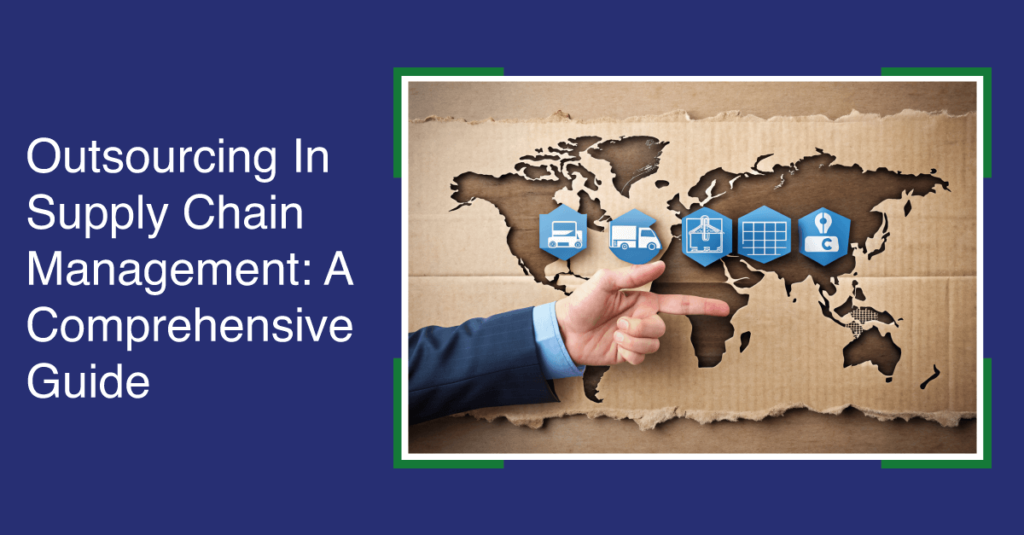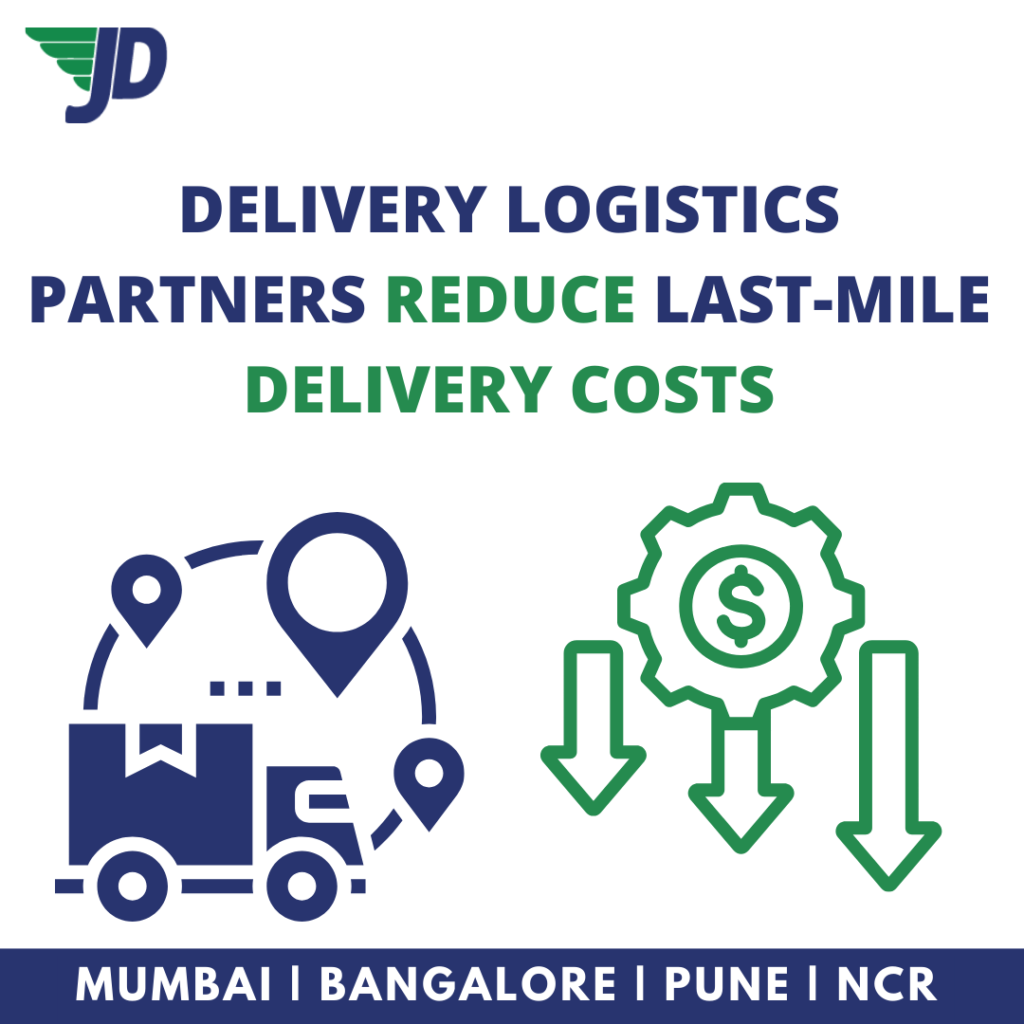Since the Industrial Revolution, companies have been trying to boost their efficiency by adopting certain processes. Outsourcing is one of the processes that eases the supply chain and allows businesses to focus on their core competencies. Integrating outsourcing with supply chain management offers a massive boost to a business’s efficiency and profitability in the long run.
In this comprehensive blog post, we will explore the benefits of outsourcing in supply chain management and how to select the right outsourcing partner to fulfil your supply chain outsourcing strategy.
A] Understanding Outsourcing In Supply Chain Management
Outsourcing the entire supply chain by hiring third-party logistics services opens several opportunities for the business. Outsourcing is the best way to focus on core business by contracting out supply chain processes to a third-party provider. Different SCM (Supply Chain Management) areas such as logistics, procurement, and manufacturing can be outsourced. It offers a range of benefits including focusing on core competencies, access to advanced supply chain technology, and risk distribution. It is a highly effective solution for those businesses that deal with perishables and food items.
Looking for B2B Last-Mile Delivery Services?
Partner with Us for Seamless B2B Last-Mile Delivery from Warehouse to Retailer
B] Advantages of Outsourcing In Supply Chain Management
1. Cost Reduction
Supply chain tasks like obtaining the items, delivery and returns demand lots of investment. It causes financial strains on businesses that manage their supply chain internally. In this case, outsourcing the business’s supply chain can play a crucial role in reducing the overall cost. Companies can save operational expenses on staffing, logistics, and order fulfilment. These savings can be utilised to fulfil the core business objectives and increase profitability.
2. Enhanced Focus on Core Competencies
Whether sourcing, planning or logistics, supply chain management requires attention and energy. Outsourcing supply chain planning and management saves these precious resources and creates room for focusing on the business’s core competencies. It allows companies to develop new ideas and services that help in boosting brand visibility and profitability. It also helps to achieve business goals by offering a required gap for critical thinking and analysis.
3. Scalability and Flexibility
When it comes to business scalability, in-house supply chain management demands lots of resources including hiring or infrastructure investments. It poses a variety of challenges in case of fluctuating demands. Supply chain outsourcing offers streamlined solutions that efficiently handle business expansion and fluctuating demands. Companies can quickly scale their business and handle sudden demands without increasing business resources. It provides a highly flexible environment for adapting to market changes and new business opportunities.
4. Risk Management
Perishable raw materials require a suitable storing environment and capable handling. In-house supply chain management may pose the risk of quality degradation as these sensitive items may not receive the optimal storing or transporting conditions. A reliable outsourcing partner has the technologies and tools to manage these raw materials. These technologies and tools ensure the optimal care for sensitive items by providing optimal temperature conditions. Since third-party outsourcing partners are equipped with IoT devices, businesses can track their raw materials’ conditions in real time. These facilities allow businesses to achieve better visibility, security, and control of their raw materials.
5. Excellent Demand & Supply Management
Since a renowned outsourcing partner would often have the expertise and resources to handle sudden demands, they offers excellent demand and supply management. Outsourcing companies are equipped with advanced technologies and skilled resources. They can manage demands and supply effectively without hampering the internal business processes. Companies can effortlessly upgrade or downgrade demand and supply chains based on customer demands.
C] How to Select the Right Outsourcing Partner to Fulfil Your Supply Chain Outsourcing Strategy?
1. Business Requirement Assessment
Business requirement assessment is a crucial step that allows businesses to select the non-core processes to be outsourced. The mindful assessment offers a greater understanding of processes that could be outsourced to ease the business’s internal operations. A detailed requirement assessment will help you communicate your needs effectively to potential partners and ensure alignment with your business goals.
2. Budget Consideration
Budget can play a crucial role in selecting the outsourcing partner for your business. It allows businesses to choose outsourcing partners within their budget range. Outsourcing is majorly adapted to reduce business expenditure, therefore choose those outsourcing partners who offer cost-effective outsourcing services without compromising on quality.
3. Flexibility
Being open to handling your sudden supply chain requirement plays a prominent role in hiring an outsourcing partner. Businesses should look for outsourcing partners with highly flexible operational environments to meet sudden supply chain demands. Also, assess the ability to scale the supply chain operation up and down based on the fluctuating demands. A flexible outsourcing partner can allow you to adapt to the changes in your business needs and market conditions.
4. Market Reputation
Market reputation is one of the key factors that should be assessed before choosing a reliable outsourcing partner. A partner’s market reputation provides reliability and performance insights. To evaluate your potential partner’s reputation, read their history, client testimonials and reviews. A good market reputation often indicates cost-effective and quality service delivery. In addition, a reputable partner will likely be more trustworthy and dependable.
5. Expertise
Expertise is another prominent factor that should be considered before choosing supply chain outsourcing services. It is essential to evaluate their technical capabilities, industry knowledge and project-handling experience. Whether it is logistics, procurement, inventory management, or other supply chain functions, their expertise should align with business goals and requirements. An outsourcing agency with a proven track record will aid in achieving your business goals more efficiently.
6. Transparency
Transparency is vital for building a successful partnership. Ensure the partner is open about their processes, pricing, and performance metrics. They should be able to provide live tracking of all your raw materials to foster in-fleet transparency. They should have communication transparency as clear communication and regular reporting help businesses monitor their progress. A transparent partner will foster trust and collaboration that pave the way for your business success.
Need Expert Supply Chain Solutions?
Connect with us for professional supply chain services to ensure seamless operations.
Conclusion
Outsourcing plays a vital role in supply chain management as it eliminates the unnecessary load of internal teams by outsourcing non-core business operations. It allows businesses to focus on their core competencies without concern about the daily procurements. Consider the discussed pointers to choose a reliable outsourcing partner to fulfil your outsourcing objectives.
JustDeliveries is a leading and reputed cold chain logistics service provider, offering tailored outsourcing services for businesses dealing with perishable items and food service chains. We provide flexible, budget-friendly outsourcing services with expertise. Need assistance? Contact us today!

Mansi Mahansaria
I’m Mansi Mahansaria, CEO and Founder of JustDeliveries, a B2B logistics company specializing in the food and beverage sector. With a background in Chemical Technology (ICT Mumbai), an MBA (FMS Delhi), and experience at IDFC Private Equity and Tata Group, I’ve built a plug-and-play logistics network helping F&B brands scale efficiently. I also share insights on entrepreneurship and logistics at industry and academic events.







Great insights! Outsourcing supply chain management offers cost savings, flexibility, and improved risk management, helping businesses focus on core operations.
Great Article !!!!!
Outsourcing supply chain management reduces costs, increases flexibility, improves risk management, and supports core business focus.
Excellent blog! You’ve provided a thorough and insightful guide on outsourcing in supply chain management. The detailed analysis and practical examples make it a valuable resource for businesses looking to streamline operations. Great work!
Insightful read! Outsourcing explained well with real-world relevance—shows how strategic partnerships can boost supply chain efficiency and cost savings.